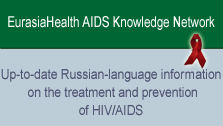Resources for Health Professionals and Patients
| Immunopathogenesis of HIV Infection | |
Attached file: |
 (Russian, 539.4 kb)
Immunopathogenesis of HIV Infection
(Russian, 539.4 kb)
Immunopathogenesis of HIV Infection
|
Link to document(s) | http://www.hivinsite.com/In... |
Author(s): | M. M. Lederman, B. Rodriguez, S. Sieg. |
Document type: | Monographs, Reports, and Book Chapters |
Language: | English, Russian |
Original language of document: | English |
Primary area(s) of focus: | HIV/AIDS |
Secondary areas of focus: | Opportunistic infections (OIs), Co-infectious diseases |
Submited by: | Victor Stanilevskiy |
Date of entry: | June 24, 2006 |
Pages: | 38 |
| As intracellular parasites, all viruses must be intimately familiar with host cellular machinery and capable of suborning it to support their replication cycle. For HIV, this relationship is particularly complex and intimate because HIV targets, infects, and incapacitates cells central to antimicrobial defenses. Thus, host immune defenses and HIV pathogenesis are inextricably linked. Whereas this parasitic relationship may contribute to the persistence and progression of HIV infection, careful study of the relationship between HIV and the immune system has also yielded important insights into mechanisms of immune homeostasis and host defenses in general. This chapter will examine briefly the proposed mechanisms whereby HIV infects host immune cells, the mechanisms whereby host defenses are mobilized to attenuate HIV replication, the strategies HIV uses to evade host immune responses, and finally, the mechanisms whereby HIV induces immune deficiency that places persons at risk for the opportunistic infections and malignancies that define AIDS. | |
Overall user rating: | Not yet reviewed |

 Print-friendly View
Print-friendly View

